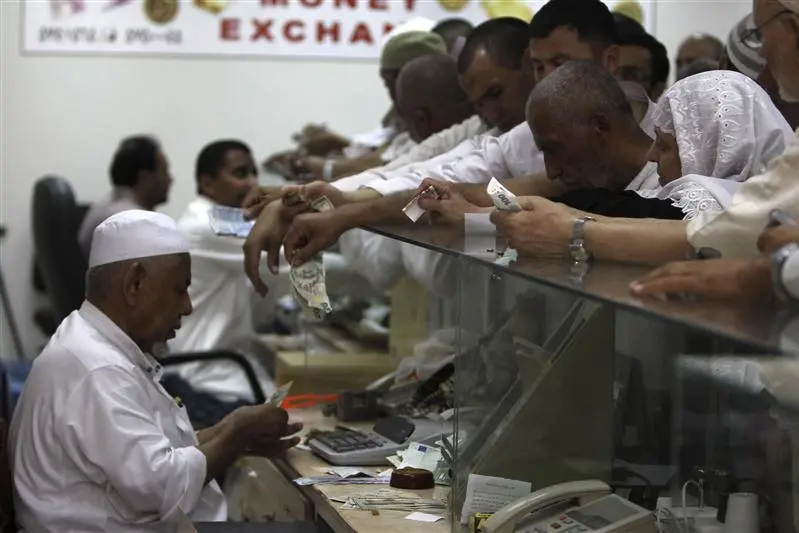PHOTO
JEDDAH -- Money exchange outlets in Makkah, Jeddah and Madinah are bustling with activity as is normal around this time of year. At least 78 firms offer foreign exchange services in the three cities to millions of pilgrims coming from all over the world to the Kingdom during Haj and Umrah seasons and they deal in more than 63 different currencies.
A large number of pilgrims do not or cannot bring with them sufficient amounts of Saudi money and they have to rely on the money changers when they run out of the local currency.
The pilgrims need Saudi riyals to pay for accommodation and food as well as to purchase gifts and souvenirs to take home.
Dr. Abdullah Al-Maghlouth, a member of the Saudi Economic Association, said the money exchange market in Haj is worth SR500 million.
Al-Maghlouth said the average amount of money exchanged in a day during the Haj season is about SR20 million. The operations reach their peak in Makkah, Jeddah and Madinah, even though there are money exchange offices in other cities, especially those on the pilgrimage routes.
Khaled Al-Amoudi, director of a money exchange company in Jeddah, stressed the importance of streamlining the banking sector to facilitate currency exchange.
"The Saudi Arabian Monetary Agency (SAMA) set out guidelines and regulations that money exchange offices must abide by. These include obtaining a license to work in the banking sector and putting in place safeguards to prevent manipulation," he said.
Historian Walid Shalabi said the profession of money changer in Makkah and Jeddah has a long history. To begin with, it does not involve a lot of hard work and the only investment required is a certain amount of foreign currency and the ability to speak a number of languages.
Shalaby said people working in the banking sector are keen to follow the global indicators to fix exchange rates.
Many of them now only exchange Saudi riyals for euro and dollar and not many Arab, African and Asian currencies, he added.
Shalaby said the latest technology was incorporated into the profession to keep up with the times. These include the use of electronic devices for communication and the introduction of modern machines that can detect counterfeit currency.
© The Saudi Gazette 2016





















